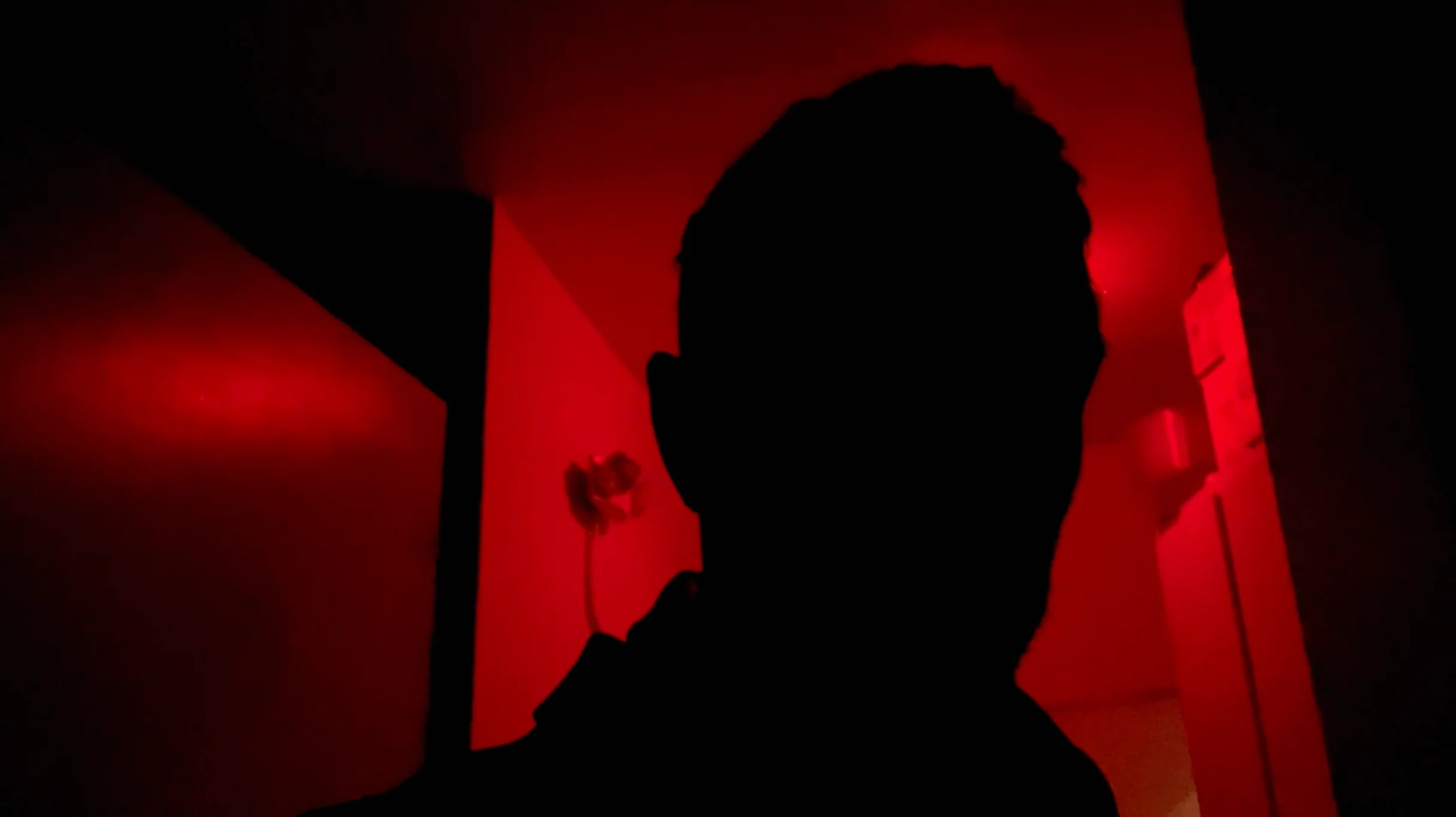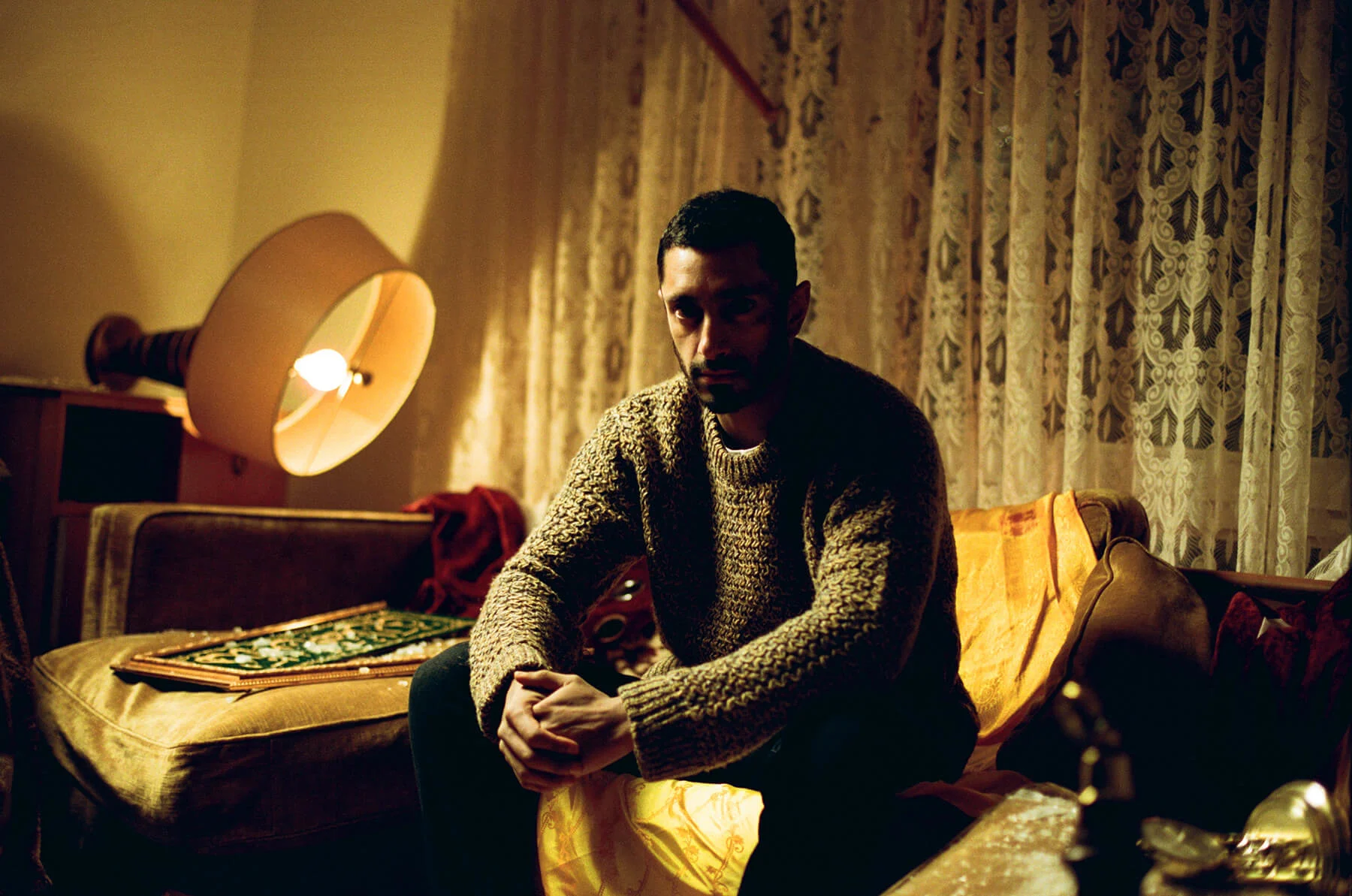
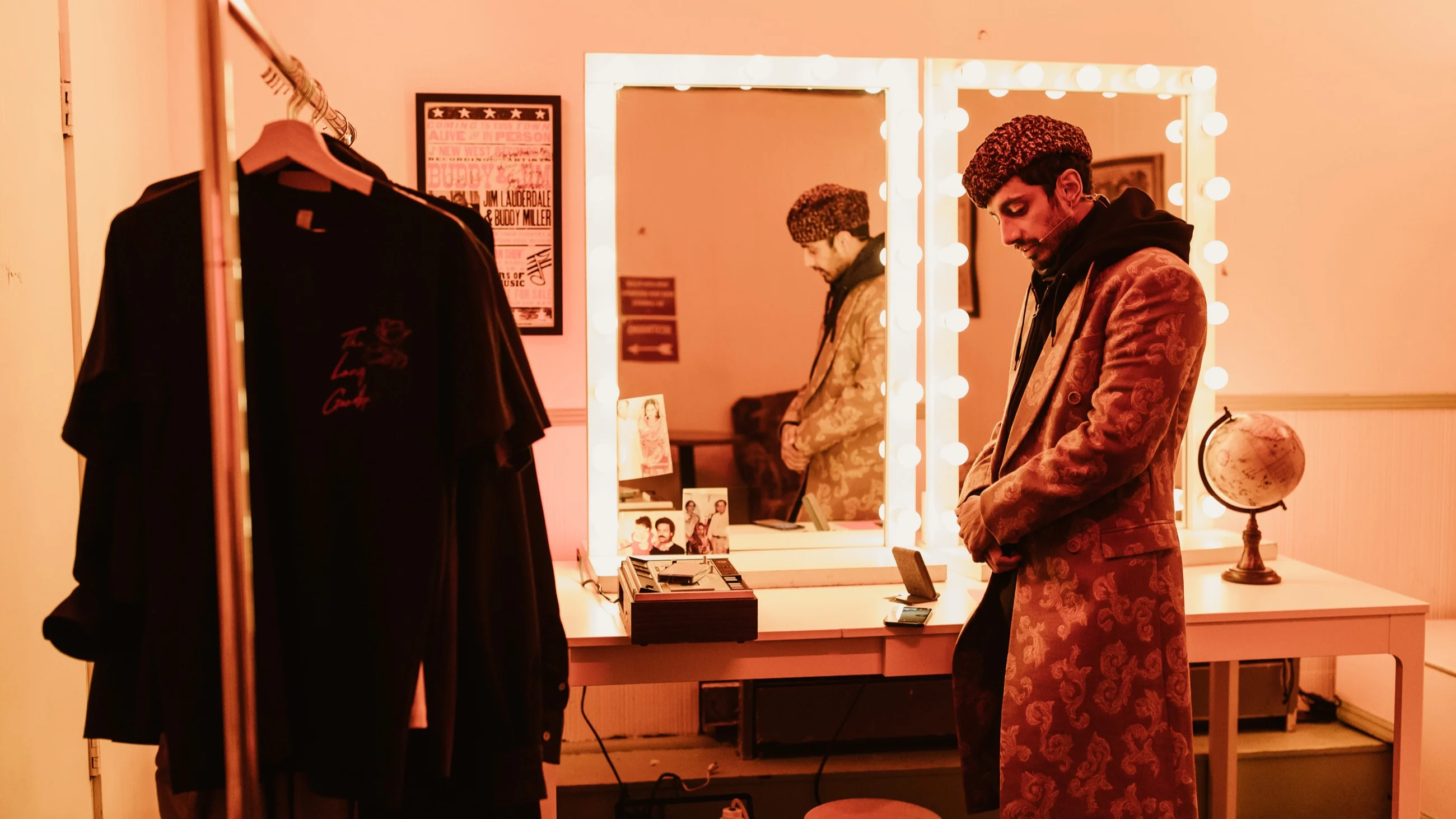
Last March, Riz Ahmed released his latest album The Long Goodbye to critical acclaim. Alongside the album he released a new short film of the same name, as part of a collaboration with WePresent and directed by Aneil Karia. Both releases saw the British-Pakistani musician, actor, and activist interrogate his relationship with his home country. Riz also planned a live show to bring that narrative to life, but lockdown was announced three days before he set off on tour. Here writer Selim Bulut talks to Riz about how he formulated a fascinating new livestream performance.
Photography by Kelly Mason
They say that ghosts haunt the corridors of San Francisco’s Great American Music Hall. In 1999, a clairvoyant claimed they could sense between 30 to 40 spirits at the 113-year-old entertainment venue and, over the years, employees have reported all manner of paranormal activity occurring after the house lights have come on and the crowds have gone home: the sense that they were being touched by an invisible force, strange figures appearing at one moment then dissolving into thin air the next, objects moving seemingly of their own accord. The Music Hall, a former brothel and dance hall, was built in 1907 over land previously occupied by a saloon that was destroyed in the devastating San Francisco earthquake just one year earlier; one theory, according to SF Weekly, is that dead bodies were never recovered from the wreckage.
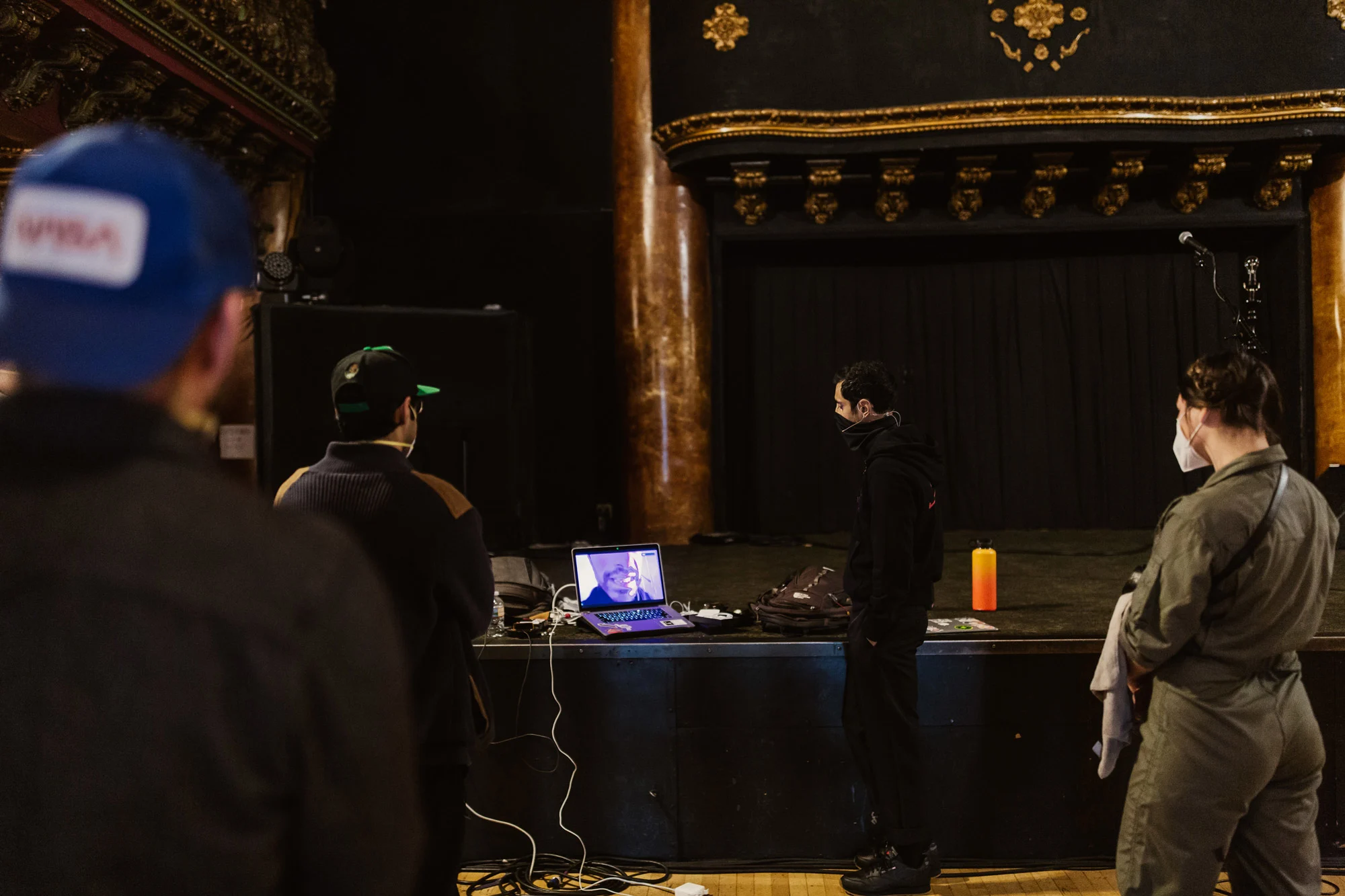
What am I doing here? Do I belong here? Did I make a mistake coming here?
Last month, musician and actor Riz Ahmed staged a livestream at this very venue. The Music Hall has been closed since March last year, when the COVID-19 pandemic hit America and Riz’s team made the most of the vacant space, using its reverberating hallways and empty green rooms as the stage for a one-man show to support his 2020 album The Long Goodbye as well as its follow-up single Once Kings. Between songs, Riz – a British Muslim artist with Pakistani roots – exorcised the ghosts of his own life, speaking intimately into his phone camera about how his family’s history informed his album’s subject matter, where the legacies of colonialism, conflict, migration, racism, and disease have left generational scars. Throughout the stream, Riz kept returning to three questions that have concerned him and his ancestors, memories of their past lives echoing around the haunted halls: “What am I doing here? Do I belong here? Did I make a mistake coming here?”
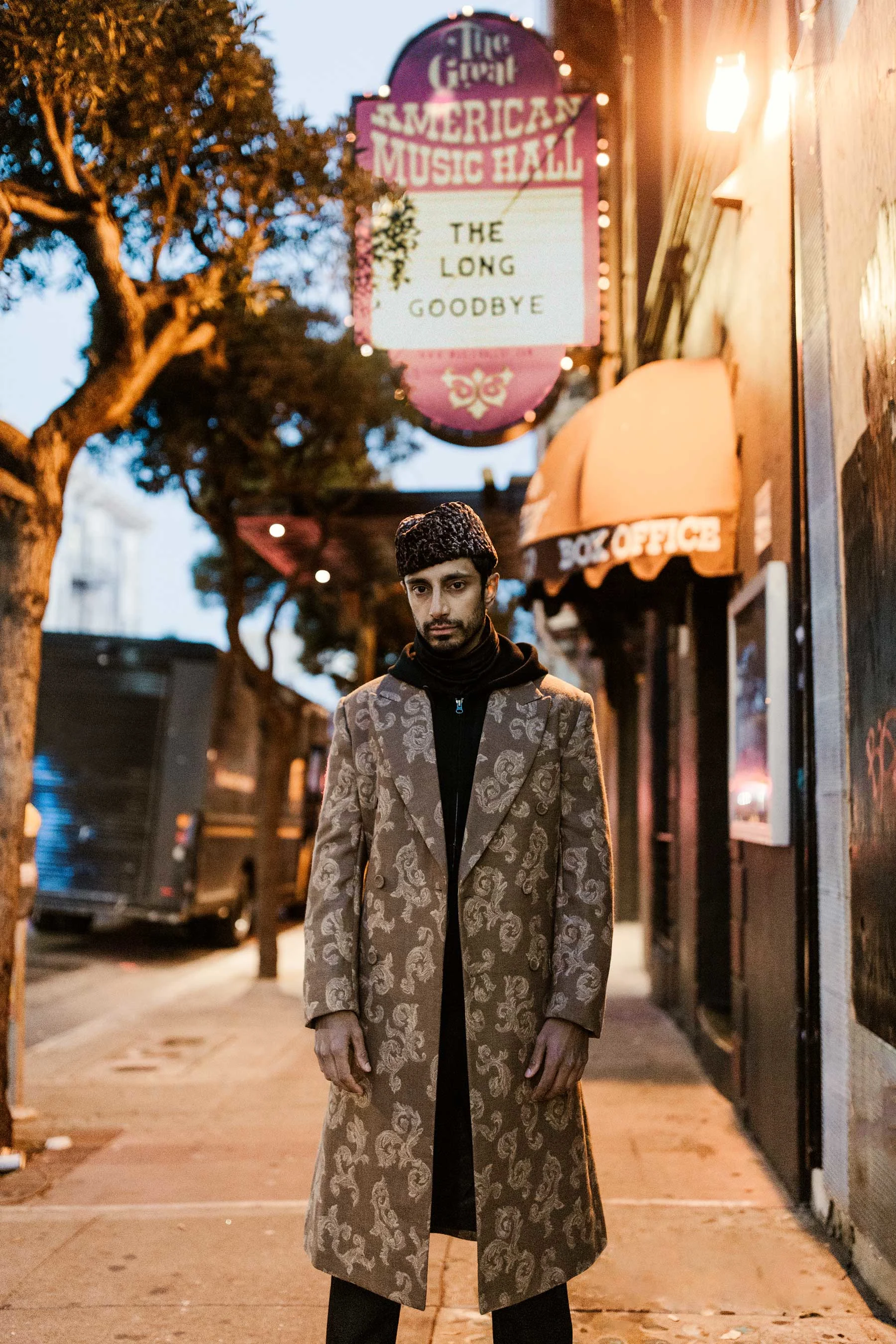
Those questions also animated The Long Goodbye, Riz’s “break-up album” written in the aftermath of the Brexit referendum in the UK and the election of Donald Trump in the US. The Long Goodbye doesn’t concern the end of a romantic relationship, but the breakdown of Ahmed’s relationship with the country he was born in, his feeling of being left in no-man’s land. “Britain’s broken up with me / We had our ups but now it’s broken down, let me break down the whole fuckery,” he raps in the first bars of album opener The Breakup (Shikwa), introducing the record’s central metaphor. “People often ask me, where did the idea for the break-up come from?” Riz says, speaking over Zoom from California while preparing for the livestream. “It’s come from a feeling that I’ve had and that friends have had. They’ve said stuff like: ‘You know what? I was born and raised in this country, but things are feeling increasingly intolerant. By the time it gets to future generations, will we still be welcome here?’ That’s a shocking thing to hear, but not surprising.”
For the new livestream, Riz wanted to dig further into these feelings and interrogate their historical context – and the deeper he looked, the more he felt that they came from “a feeling that pre-dates” his own life.” The result was a show that goes back to where the story began, “a journey through space and time,” from India to Pakistan to England to America. “As much as it looks at my journey, it also looks at journeys before that,” Riz says. “How did we get to where we are today? How did we get to this precipice of division and intolerance? How did I physically get here, talking to you in California? How did we get to a place where I’m performing gigs in livestream settings and shooting in selfie mode?” Two journeys, in particular, haunt Riz’s livestream: that of his grandfather, a poet who fled from India to Pakistan during the 1947 partition; and that of his grandfather’s son, Riz’s uncle, who worked in an asbestos factory and suffered permanent scarring to his lungs, recently leading to his death from COVID-19. Their memories linger during Riz’s monologues like the ghosts of the Music Hall, the past bleeding into the present.
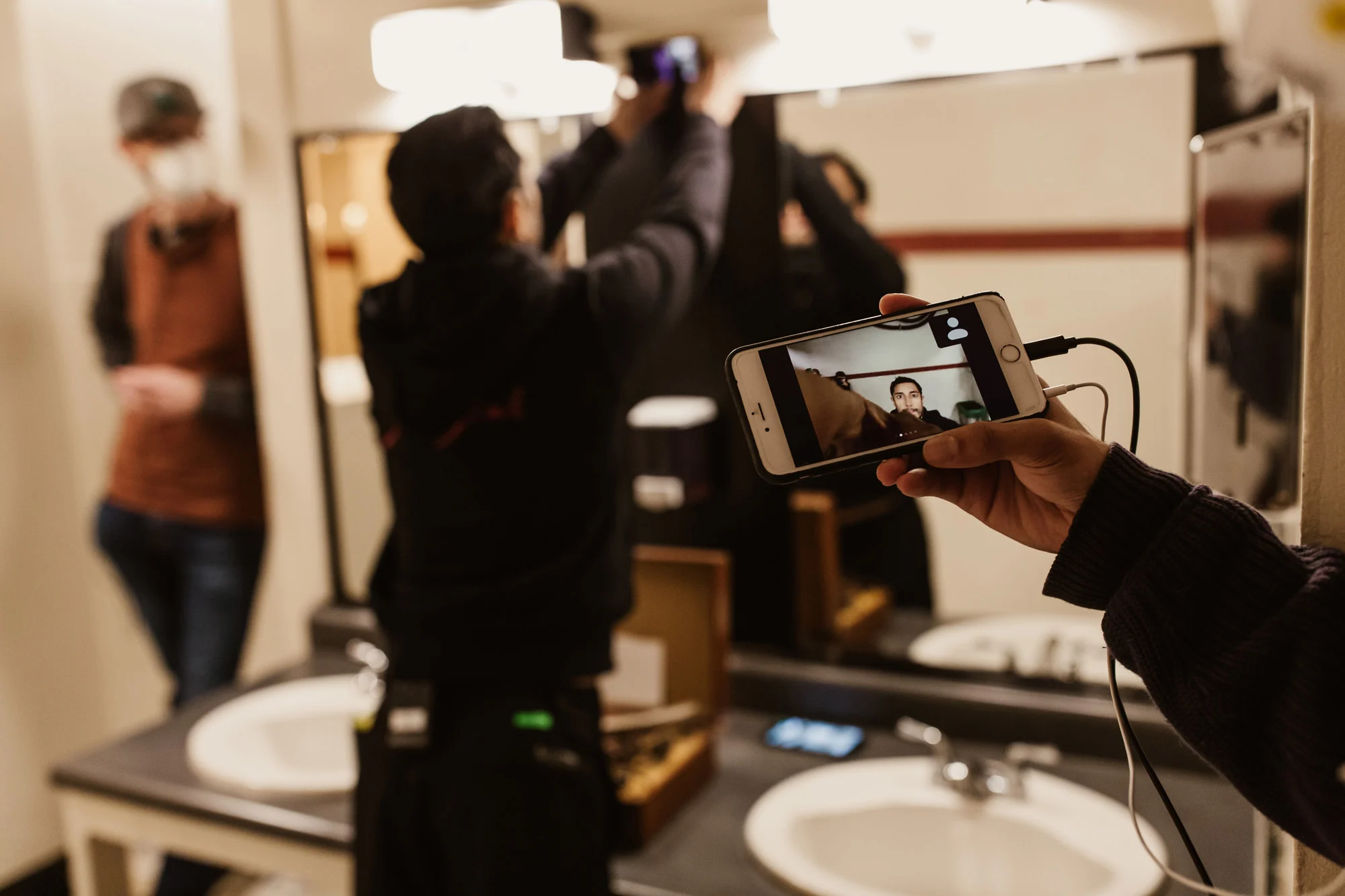
The Long Goodbye was released just weeks before national shutdowns and stay-at-home orders were issued around the world. The album was always intended to be a multimedia experience, with Riz starring in a startling short film to accompany its release, and when he planned internationals dates to support the record (including commissions at Manchester International Festival and the Brooklyn Academy of Music), he planned to add a “narrative, theatrical element” to the usual live show. But when the UK went into lockdown three days before the shows, he was forced to cancel, and instead supported the album with a series of online discussions under the name The Long Lockdown, which included a watchalong of the 2010 film Four Lions (which Riz starred in) and panels with writers like Rupi Kaur, Nikesh Shukla, and Fatima Bhutto. This unusual album campaign resonated with people, and when Riz found himself in California recently for a new film project, he set about finding a new show to stage as a way to close out the year. In the context of mass job losses caused by the economic fallout of the pandemic, he and his creative team decided to charge for the stream on a pay-what-you-want basis.
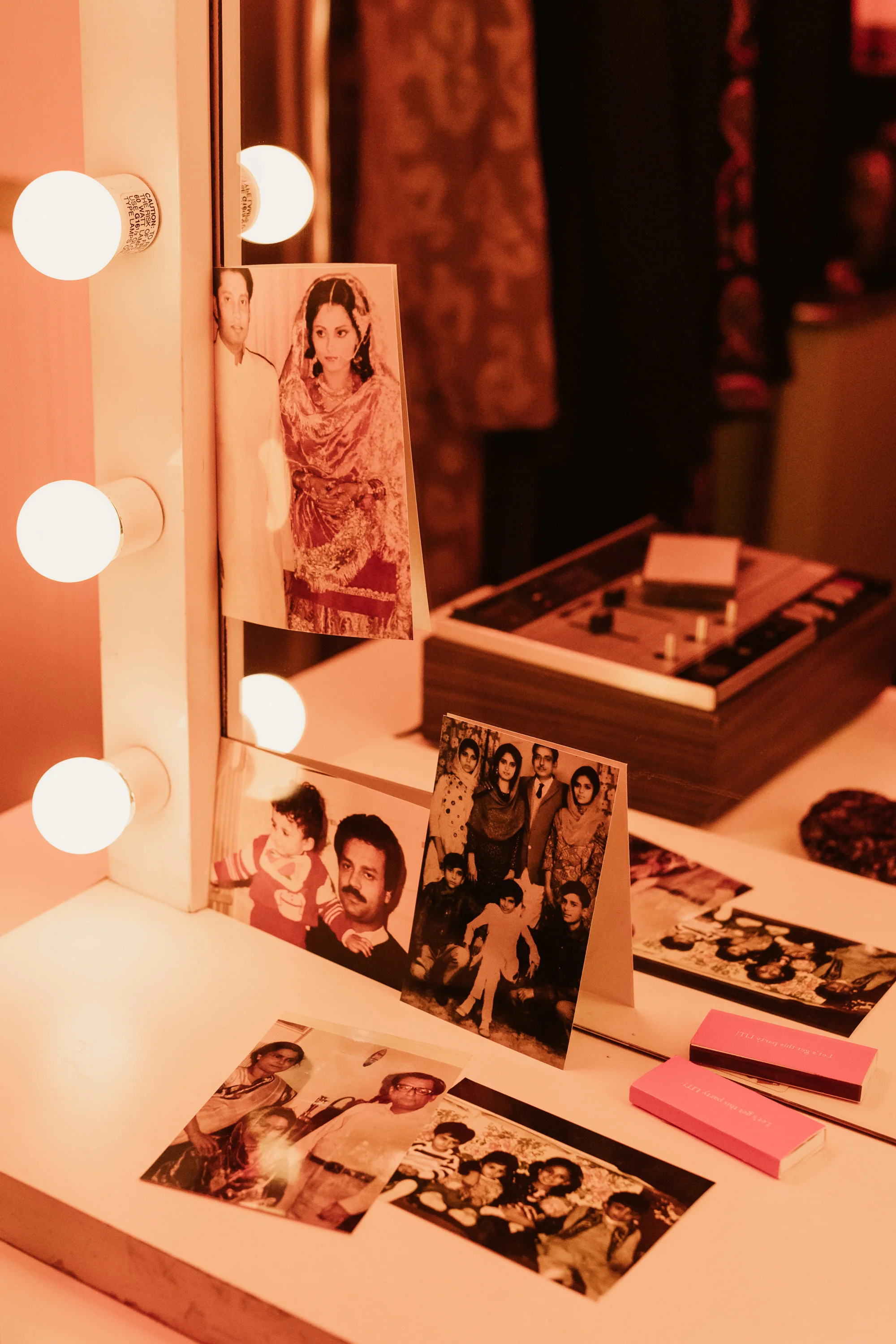
“In the beginning, we were really just talking about the source material – the album – and what that might mean in the context of a global pandemic,” says Kirsty Housley, who directed the performance. “We ruled out trying to make a digital version of the live show we had been working on when lockdown one hit, which really did need to be live with an audience in the space. We started asking questions again: How did we get here? What’s the point of a show without an audience? Why do we want to make this? What questions was Riz asking when he wrote the tracks?” Riz, Kirsty, and the rest of his creative team sought to strip back the artifice of his performance to channel the present moment in an urgent way. “We used analog techniques for a modern digital livestream,” says creative director Andrea Gelardin. “We used subtle in-camera effects that would not distract from the songs or stories Riz was telling and performing. It felt important to give time and space for the tracks to breathe and not to go down that tempting route of throwing glitzy visual stuff at it to make it look too polished or glamorous. After all, in this show we’re talking about the sober reality of our today. A reality of a divisive and confusing world, and one in which 1.76 million people have now died from COVID-19.”
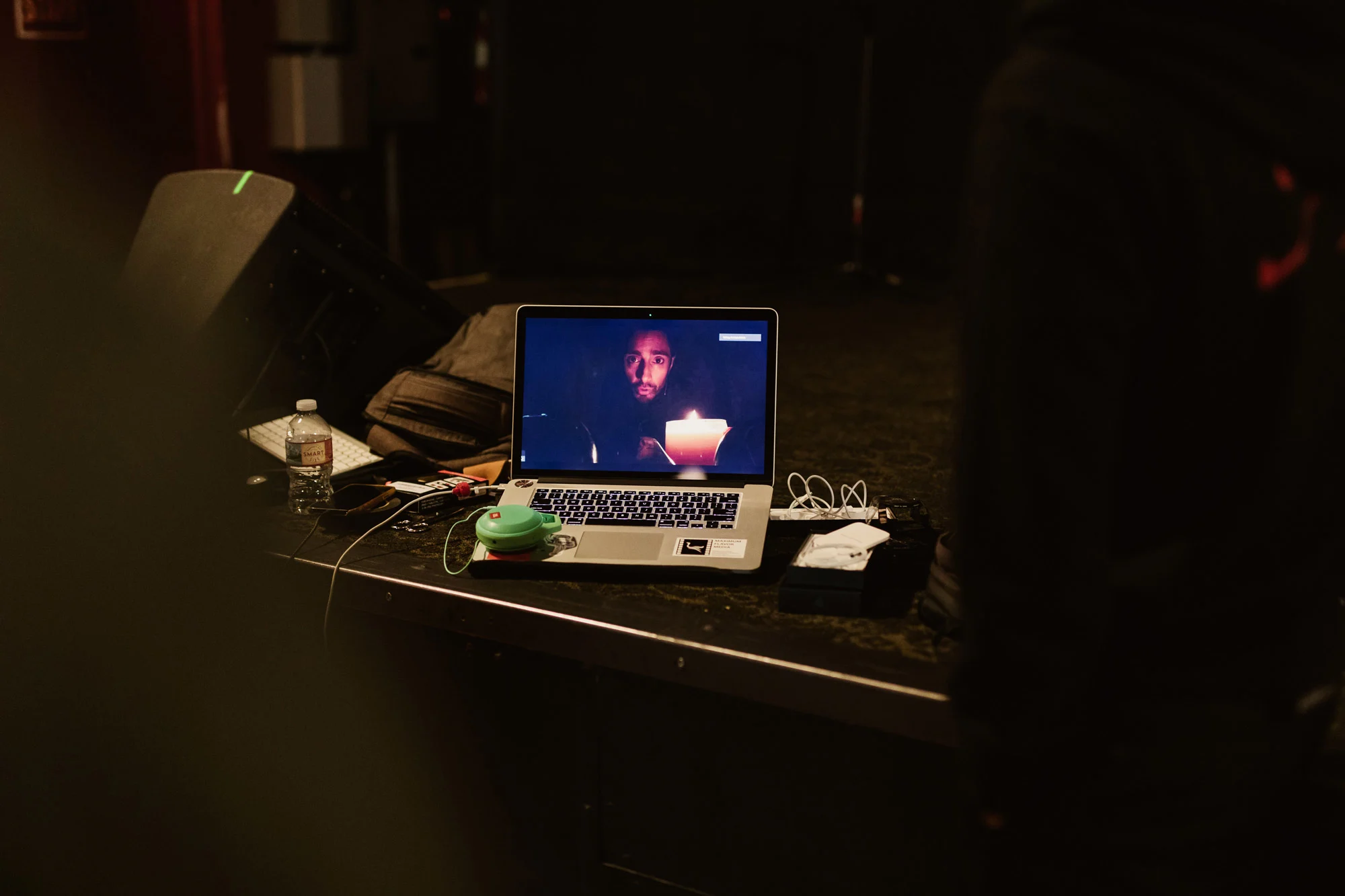
When you live with death by your side, it really clarifies and crystallizes your purpose.
The team worked within COVID safety restrictions and across time zones, with a creative team directing Riz from the UK and a production team in California setting up lights, costumes, props, and cameras for him beforehand. The physical space of the Music Hall – the toilet, the dressing room, the corridors, the balcony, the stage – ended up giving the livestream its structure. “We started talking about the empty space and the ghosts that might haunt it – stories from the past,” says Kirsty. “Riz was interested in using lots of different spaces, rather than just the auditorium, so we decided to take the audience backstage and show them how Riz gets ready for a gig. We also talked about going backstage into Riz’s mind, telling the backstory of each track, how it relates to a personal story from Riz’s family past. All of these elements started to be brought in and woven together to ask, and maybe partly answer, the question of how we got here.”
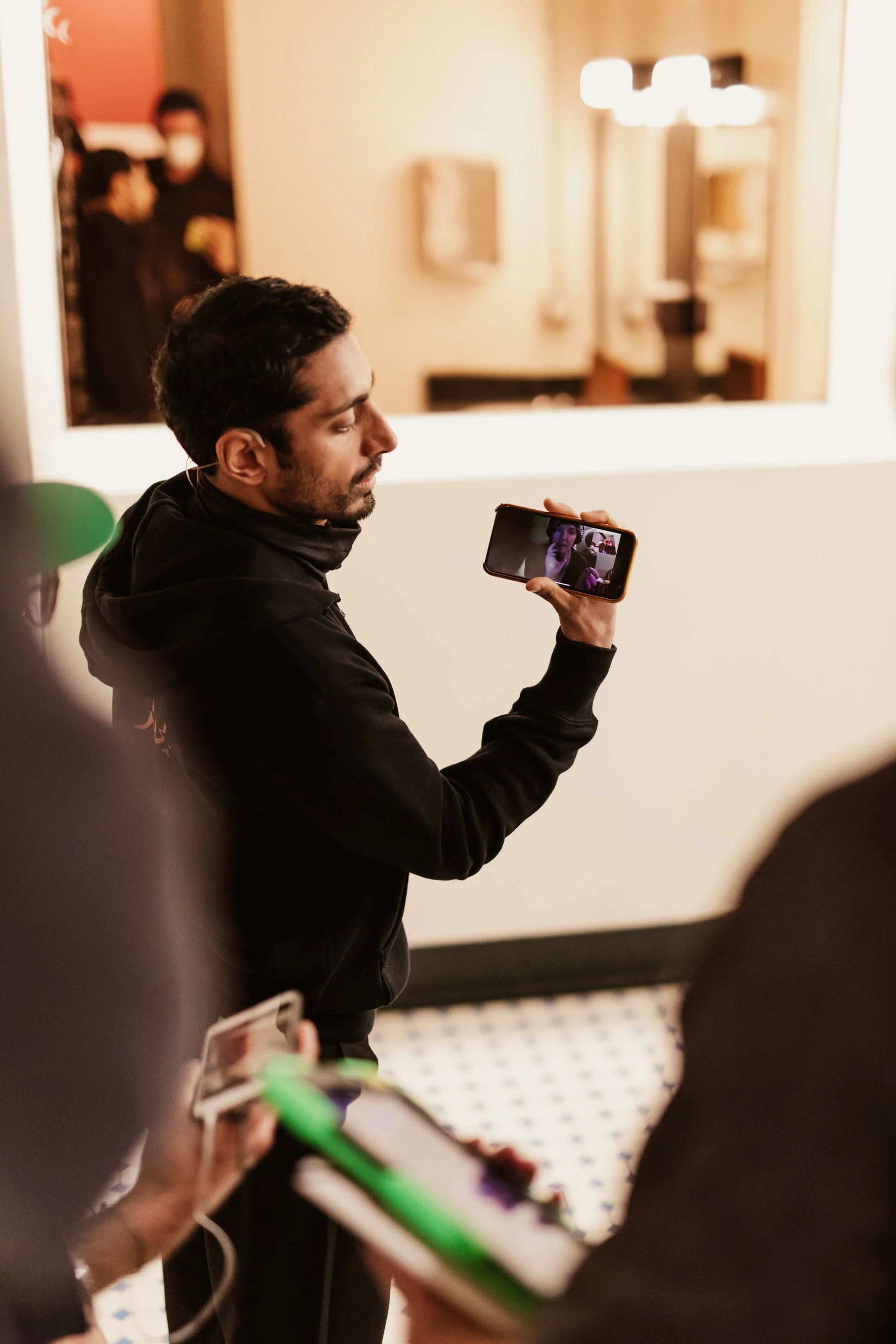
Two stories of Riz’s family’s past are relayed while he stands in the dressing room, picking out two outfits from the clothing rack to illustrate. The first outfit is a paisley dressing gown that he wears with a karakul hat, both pieces of clothing similar to items his grandfather owned. The second outfit is a paisley shirt, just like one Riz’s uncle might have worn in the ‘70s. Riz talks about how the paisley pattern was created in India, then taken back by British colonists to the town of Paisley, Scotland, and eventually sold back to India. “Working with Riz is always a conversation about culture, as much as it is clothing,” says stylist Julie Ragolia, who worked with Riz remotely using an iPad rather than being as “hands on” as she usually is. “I co-ordinated a series of looks that would illustrate the story communicated through Riz’s words and music, from streetwear inspired by sherwani styles, to designer pieces that utilise South East Asian motifs such as the Dior coat he wears while discussing the origin of paisley.”
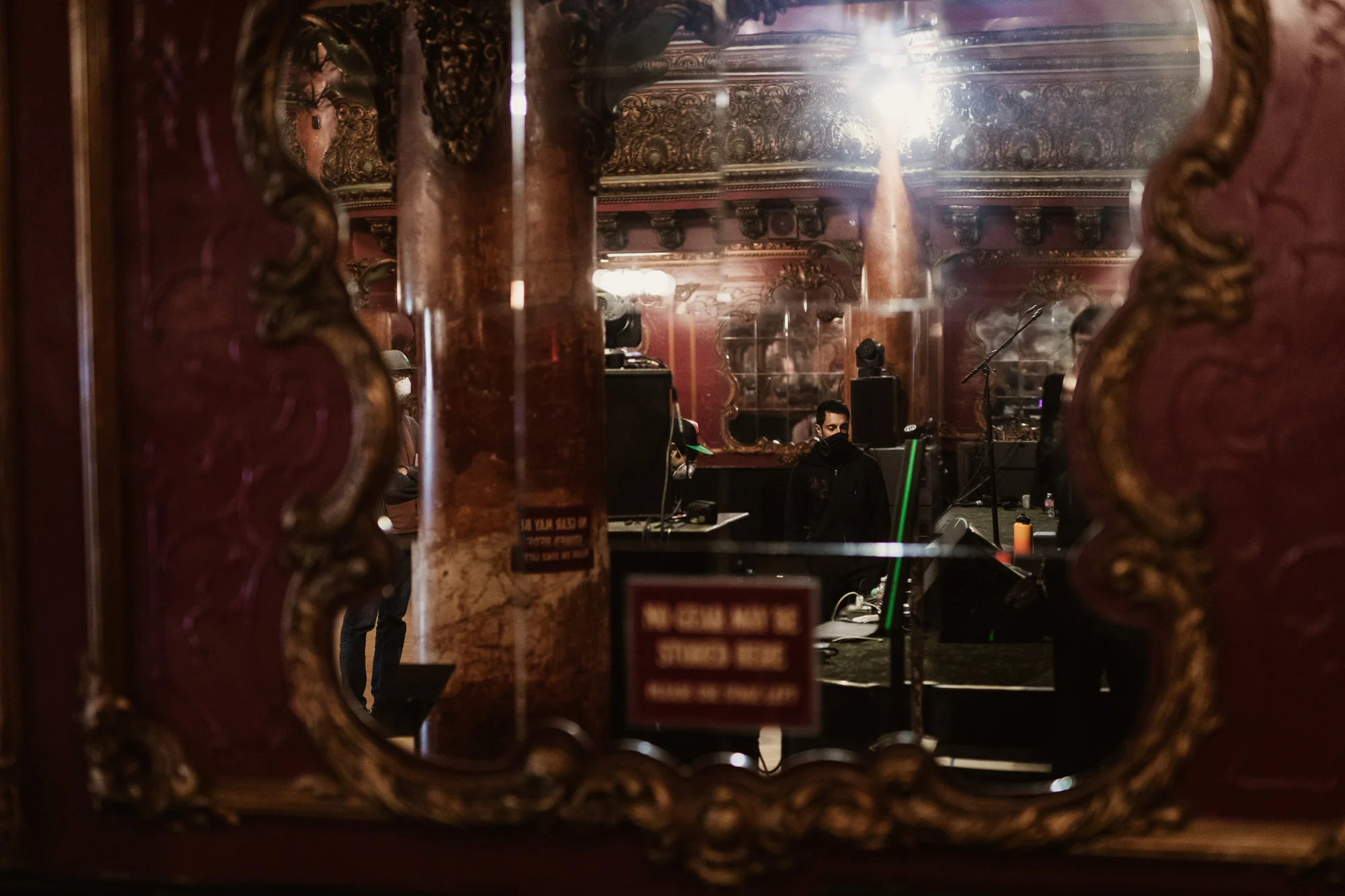
I believe that when we’re creating [art], it’s not us imposing our intellect onto something, it’s us channelling something we don’t own, this collective unconsciousness.
Julie and Riz discussed how to bring his story and that of his family’s history to life while also keeping “consideration of current fashion” in mind. It’s not the only example of this temporal bleedthrough in the show. Between songs, sound designer Gareth Fry’s binaural sound design introduces this idea in a far more harrowing and visceral way, mixing train chugs and screams, evoking the “ghost trains” carrying the bodies of Muslim refugees who were killed by mobs fleeing India during partition. This is later mixed with the sound of aeroplanes taking off, drawing parallels to the trauma of deportation today, and recordings of racist speeches broadcast in the British media, including Margaret Thatcher using National Front-esque language of Britain being “swamped” by migrants in 1978 when she was still Leader of the Opposition. In the livestream, Riz talks about how his grandfather experienced Alzheimer’s towards the end of his life, and was unsure if he was in India in 1947 or Pakistan in 1971 or England post-9/11, underscoring the blur between the past and present.
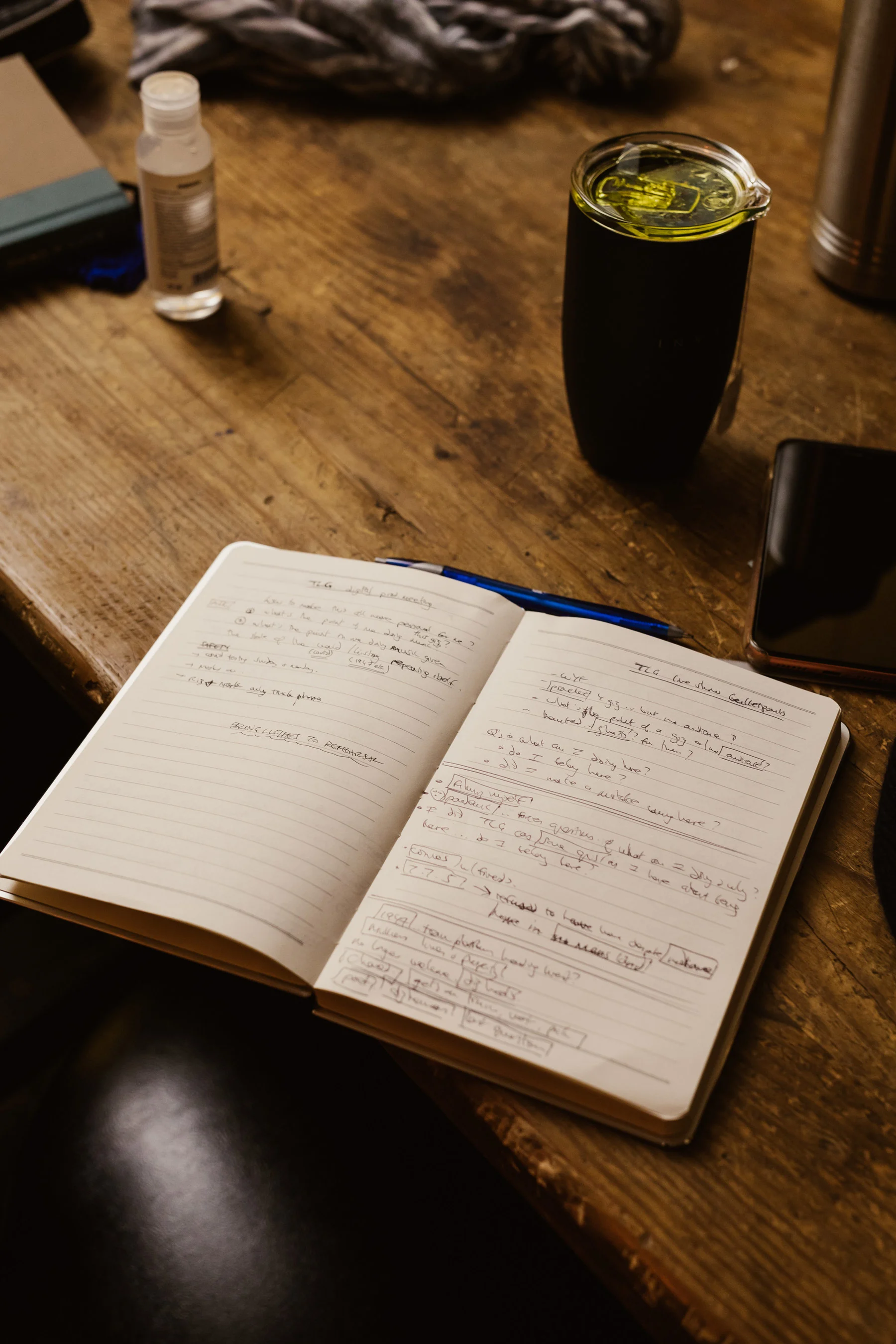
Riz filmed the majority of the performance himself using a front-facing phone camera. “When you’re in a gig or a concert hall, you’ve got hundreds or thousands of people there that you’re performing to, and that allows for a different kind of intimacy to a camera in close-up that you’re livestreaming from,” he says. “We wanted to make it feel very personal. It’s more intimate than anything we would have thought to present to thousands of people.” This intimacy reflects a shift in Riz’s own thinking over the past 18 months towards making work where the fierceness of his social and political commentary is nevertheless more personal in nature. “The whole experience of 2020 – of COVID, and Black Lives Matter – has made us all think about what we’re doing, and why we’re doing it,” Riz says. “When you live with death by your side, it clarifies and crystallizes your purpose. And I think we’ve all been living with death by our sides. What this year has done is push me to create from an ever more personal place. You have to step into that emotional terrain.”

These timely-yet-timeless themes are not just explored in The Long Goodbye and Once Kings, but also in Riz’s recent film Mogul Mowgli. He says he’s been pleased to see how the work has resonated with fans, who’ve pointed out recurring patterns that he himself didn’t even recognise at first. “That’s the most gratifying thing, because I really believe that when we’re creating , it’s not us imposing our intellect onto something, it’s us channelling something we don’t own, this collective unconsciousness,” he says. “I don’t know if I consider myself a spiritual person, but I think we could make more room for spirituality in our society and in the way we relate to each other. Creativity and artistic expression, at its height, is a form of spiritual expression, an attempt to push the ego and intellect to one side and channel something collective.”
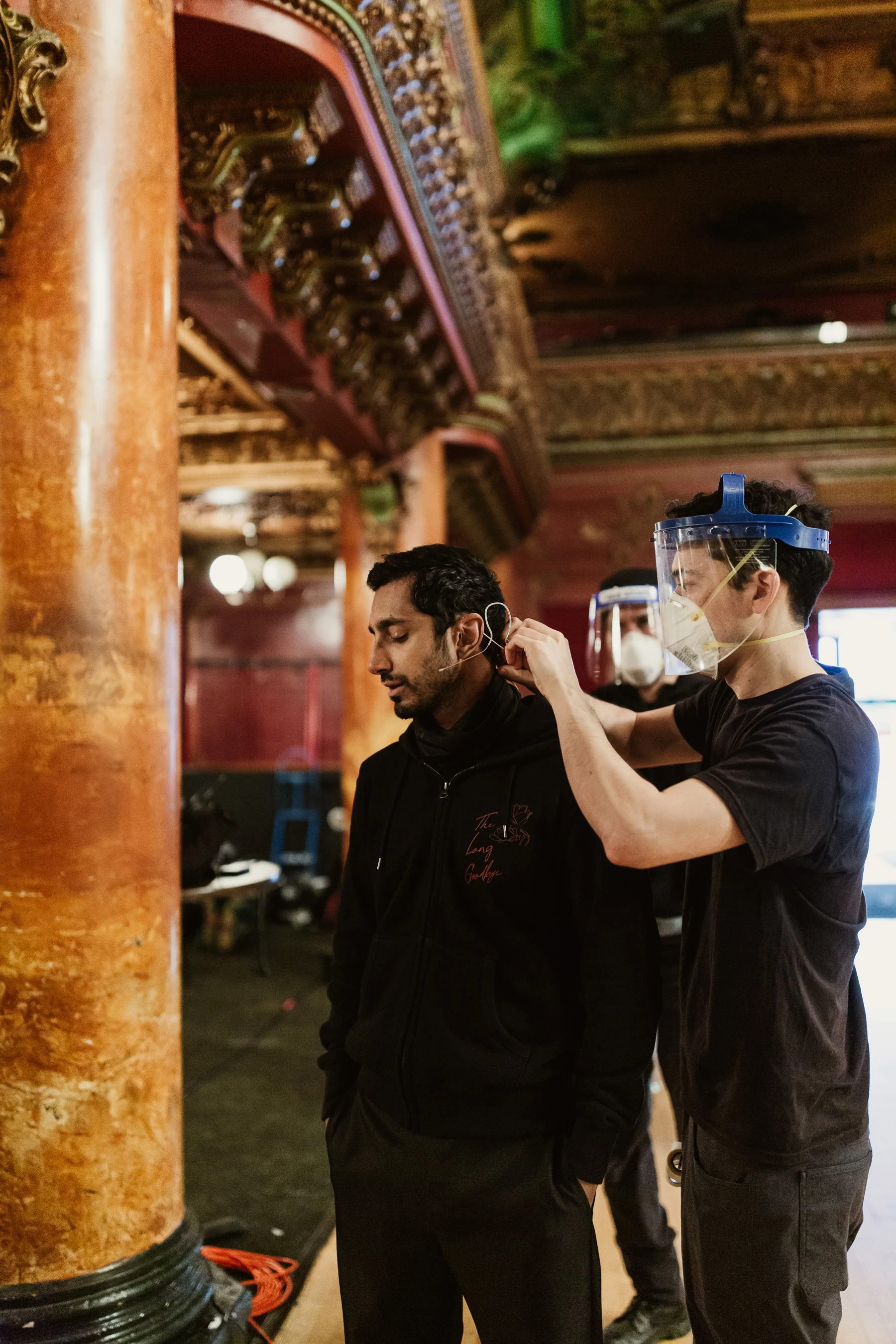
I used to think of creativity like Sudoku, or crossword puzzles. [Now] I think of it more as a kind of exorcism.
It’s something that he says reflects his evolving creative process, which he sees less as an intellectual endeavour and more like “what spiritual healers or witch doctors” might have done in the past. “It’s a ritualised performance that invokes our ancestors, and the people that brought us here, in order to heal personal and collective trauma,” he says. “I used to think of creativity like Sudoku, or crossword puzzles. I think of it more as a kind of exorcism.”
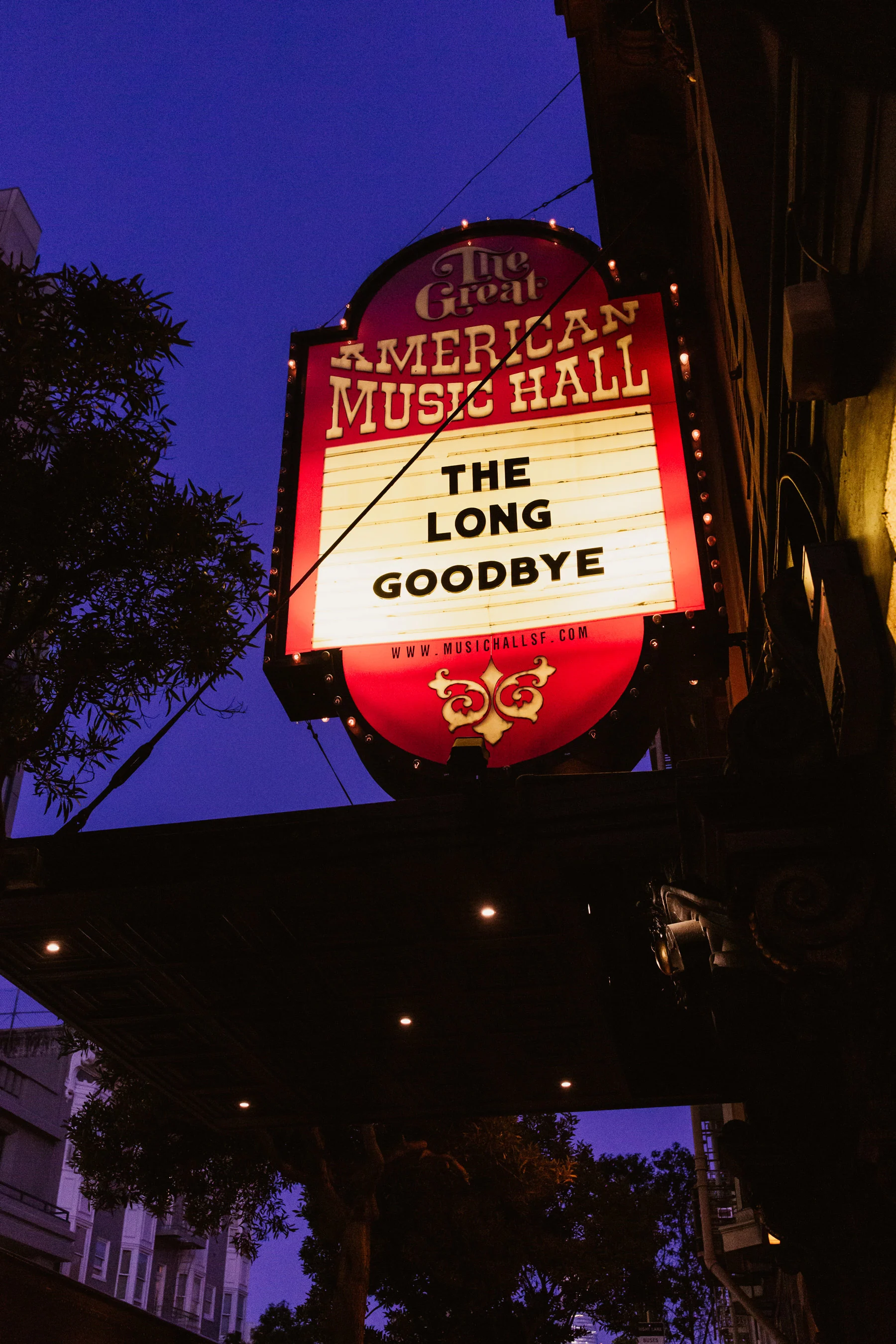
Watch The Long Goodbye: Livestream on Manchester International Festival.
